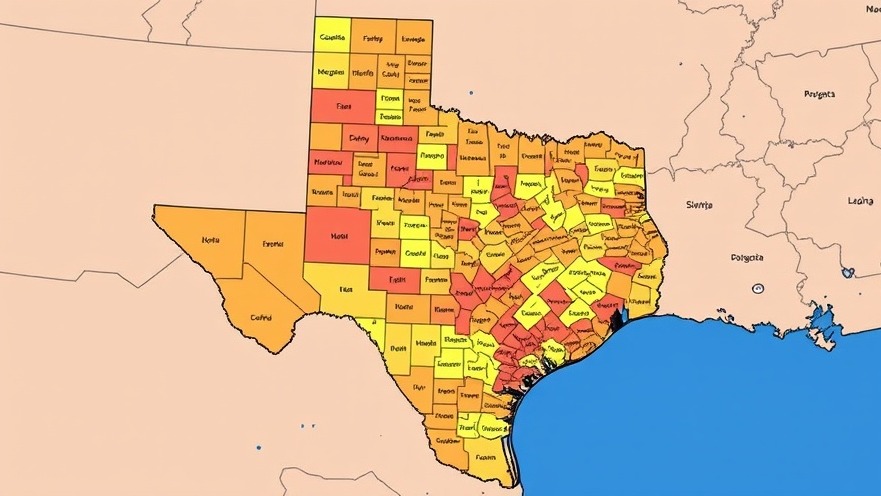
A Mixed Bag of Opinions on Redistricting
Recent polls reveal that Texas voters are far from unified when it comes to the state's controversial redistricting efforts. With only one in three voters supportive of the GOP-led initiative to redraw congressional districts, there is a marked divide, particularly between party lines. The Texas Politics Project conducted a statewide survey, illustrating that a significant portion of the population opposes the redistricting plan, especially among independent and Democratic voters. As political power and representation are at stake, the push for reconfiguration is raising eyebrows and concerns among Texas residents.
Independent voters showed particularly strong disapproval, with just 13% in favor of the new map, while 41% voiced their opposition. This refusal to accept the redistricting efforts suggests broader implications for the upcoming 2026 midterms, as the newly signed law by Governor Greg Abbott aims to net five additional Republican seats. The political ramifications of this maneuver are extensive, with potential shifts in voting power and representation across Texas.
Impact of Trump's Megabill on Texans
The survey also examined sentiments regarding President Donald Trump's recent tax and spending legislation, termed the "One Big Beautiful Bill Act." While 65% of GOP voters approve of the megabill, Democrats and independents are not so keen. With a disapproval rating of 45% versus 32% approval among all Texas voters, the megabill indicates a stark partisan divide in economic perspectives.
For many voters, particularly Democrats and independents, the anticipation of tax reductions tied to the bill appears overly optimistic. Instead, nearly half of Democrats suspect that the legislation may actually raise their taxes rather than lower them. Such sentiments point to deeper concerns about economic realities faced by Texas families, especially regarding rising food prices and health care costs attributed to existing policies.
Amid Economic Concerns: The State of Texas Marijuana Laws
This comprehensive survey also touched on evolving perspectives surrounding marijuana laws in Texas. Interestingly, regulation of THC products was among the least prioritized issues by voters surveyed. Almost half of respondents wished to see stricter laws softened, revealing a potential openness to reevaluate cannabis regulations that have traditionally defined Texas law.
Despite divergent views among the electorate, there is a significant portion of GOP members who express ambivalence or support for more lenient laws related to marijuana. This shift underscores a broader trend of changing attitudes toward drug policy, particularly as economic challenges loom large.
Looking Forward: Texas Political Landscape and 2025 Elections
As Texas gears up for the political races of 2025, what do these poll results mean for candidates vying for Senate seats and governorship? With heightened political engagement among Texas voters, issues such as redistricting, economic policies, and marijuana regulations will likely play pivotal roles in shaping party platforms and campaign strategies. Candidates will need to pay attention to these sentiments to forge connections with constituents and navigate the increasingly complex political landscape.
Conclusions: The Pulse of Texas Voters
This recent polling from Texas Politics Project highlights a nuanced layer of voter attitudes crucial for understanding the evolving political scenario. With a mix of disapproval towards the redistricting plan and skepticism about Trump's megabill, voters are searching for representation and policies that reflect their needs and experiences. As Texas continues to flourish as a pivotal state in national politics, examining these local sentiments is vital. Civic engagement remains key as voters head toward next year’s elections.
 Add Element
Add Element  Add Row
Add Row 



Write A Comment